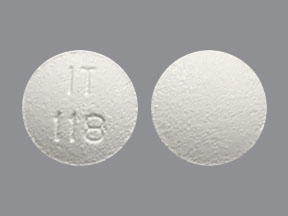
Ambien Coupons & Savings Card – Discount Prices from $3.70
Brand for: Zolpidem
My prescription
Edit
10MG, Zolpidem (30 Tablets)
Select pharmacy

CVS
$19.17
COUPON PRICE
Walmart
$3.70
COUPON PRICE
Albertsons
$10.05
COUPON PRICE
Walgreens
$10.11
COUPON PRICEAmbien savings card
Show this card to your pharmacist
Walmart
$3.70
BIN
ID
PCN
GRP
019876
LH975AB561
CHIPPO
LHX
Powered by
Related GABA agonists prescriptions
More prescriptions for insomnia
Related GABA agonists prescriptions
More prescriptions for insomnia
Ambien (Zolpidem) dosage forms
Dosage Quantity Price from Per unit 5MG 15 Tablets $3.06 $0.20 5MG 30 Tablets $3.62 $0.12 5MG 45 Tablets $4.18 $0.09 5MG 60 Tablets $4.74 $0.08 5MG 90 Tablets $12.36 $0.14 10MG 30 Tablets $3.70 $0.12 10MG 15 Tablets $3.10 $0.21 10MG 45 Tablets $4.30 $0.10 10MG 60 Tablets $4.90 $0.08 10MG 90 Tablets $12.60 $0.14
| Dosage | Quantity | Price from | Per unit |
|---|---|---|---|
| 5MG | 15 Tablets | $3.06 | $0.20 |
| 5MG | 30 Tablets | $3.62 | $0.12 |
| 5MG | 45 Tablets | $4.18 | $0.09 |
| 5MG | 60 Tablets | $4.74 | $0.08 |
| 5MG | 90 Tablets | $12.36 | $0.14 |
| 10MG | 30 Tablets | $3.70 | $0.12 |
| 10MG | 15 Tablets | $3.10 | $0.21 |
| 10MG | 45 Tablets | $4.30 | $0.10 |
| 10MG | 60 Tablets | $4.90 | $0.08 |
| 10MG | 90 Tablets | $12.60 | $0.14 |
Is Ambien a strong sleeping pill?
Ambien is considered a strong sleeping pill and is typically prescribed for short-term treatment of insomnia. It is effective in helping individuals fall asleep more quickly and is generally used when other non-pharmacological treatments have not been successful. However, it should be used under the guidance of a healthcare professional due to potential side effects and the risk of dependence.
How is Ambien different than Xanax?
Ambien (zolpidem) and Xanax (alprazolam) are both medications used to treat different conditions. Ambien is primarily prescribed for short-term treatment of insomnia, helping individuals fall asleep. It is classified as a sedative-hypnotic. Xanax, on the other hand, is used to manage anxiety and panic disorders and belongs to the benzodiazepine class. While both can have sedative effects, their mechanisms of action and primary uses differ significantly.
What does an Ambien do to you?
Ambien, also known as zolpidem, is a medication primarily used to treat insomnia. It works by affecting chemicals in the brain that may be unbalanced in people with sleep problems, helping them to fall asleep more easily and stay asleep longer. It is typically prescribed for short-term use due to the potential for dependence and side effects.
Is Ambien a narcotic?
Ambien is not classified as a narcotic. It is a sedative-hypnotic medication used primarily for the short-term treatment of insomnia.
Which is better for sleep, Ambien or Xanax?
Ambien (zolpidem) is specifically designed for short-term treatment of insomnia and is generally preferred for sleep-related issues. Xanax (alprazolam), on the other hand, is primarily used for anxiety and is not typically recommended for sleep due to its potential for dependence and other side effects. It is important for individuals to consult with their healthcare provider to determine the most appropriate medication for their specific needs.
